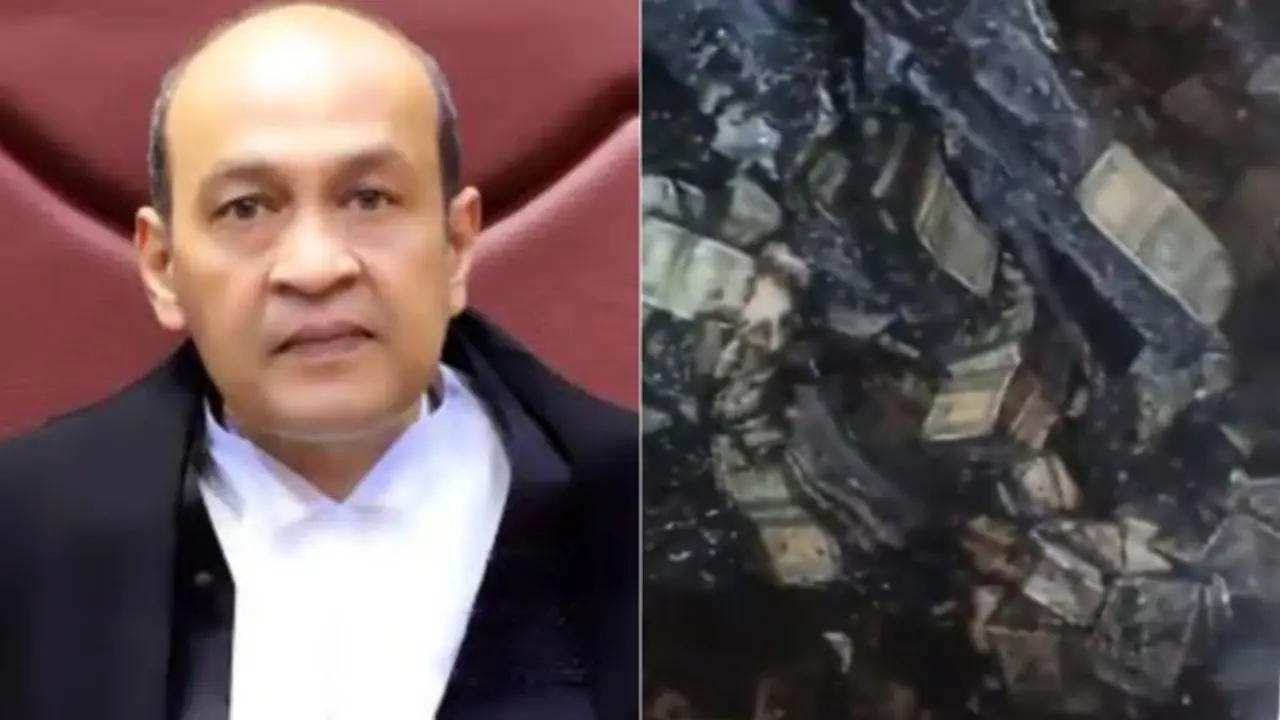A Supreme Court inquiry found Justice Yashwant Varma unable to explain stacks of burnt cash discovered at his Delhi home. The Centre is now considering impeachment during Parliament’s Monsoon Session, citing serious misconduct and denial.
The Centre is likely to move an impeachment motion against Justice Yashwant Varma during the Monsoon Session of Parliament after a Supreme Court-appointed panel found serious misconduct over a cash haul at his residence.

The panel’s report, accessed by India Today, revealed that stacks of burnt currency, reportedly 1.5 feet high, were found in the storeroom of Justice Varma’s official Delhi residence after a fire broke out on March 14. Justice Varma was not at home when the fire occurred. His family and staff alerted the fire brigade and local police. Emergency responders allegedly discovered large quantities of cash, the source of which Justice Varma has failed to explain.
Transferred from Delhi High Court to Allahabad High Court after the incident, Justice Varma has not been assigned any judicial work. His refusal to resign has now prompted the Centre to consider invoking constitutional provisions for his removal.
In a report submitted to President Droupadi Murmu and Prime Minister Narendra Modi on May 9, Chief Justice of India Sanjiv Khanna recommended initiating impeachment proceedings. The matter has now been referred to the Lok Sabha Speaker and the Rajya Sabha Chairman.
What the report says
The inquiry committee confirmed that the cash was discovered in a locked storeroom under the “active control” of Justice Varma and his family. A total of 17 people, including his daughter, were present at the residence when the fire broke out.
Justice Varma has denied all allegations, calling them a conspiracy. However, the panel said he offered no plausible explanation for the cash and instead issued a “flat denial.” It noted that the burden of proof rested with the judge once the presence of cash was established, a burden he failed to meet.
The committee dismissed the conspiracy theory, noting the storeroom was accessible only to Varma’s family and that his staff attempted to remove burnt notes after the blaze. A liquor cabinet near the switchboard allegedly intensified the fire.
Despite the serious nature of the findings, no FIR was filed due to Justice Varma's absence and the police's claim of insufficient details about a criminal offence. The Supreme Court also refused to entertain petitions seeking an FIR, placing the onus on the government.
What is impeachment?
While the Constitution does not explicitly use the term 'impeachment', Articles 124 and 218 govern the process of removing judges of the Supreme Court and High Courts respectively. Under the Judges Inquiry Act, 1968, the process begins with a notice signed by 100 Lok Sabha MPs or 50 Rajya Sabha MPs. A three-member panel is then formed to investigate the charges.
If found guilty, the motion must be passed by a two-thirds majority in both Houses of Parliament before the President issues an order of removal.
No judge impeached yet
No judge has been successfully impeached in India. Justice V. Ramaswami faced an impeachment motion in 1993, which failed in the Lok Sabha. Justice Soumitra Sen of the Calcutta High Court resigned in 2011 before the Lok Sabha could vote, after the Rajya Sabha passed an impeachment motion against him.
The Justice Varma case could be India’s first instance of successful judicial impeachment, if Parliament chooses to act.


